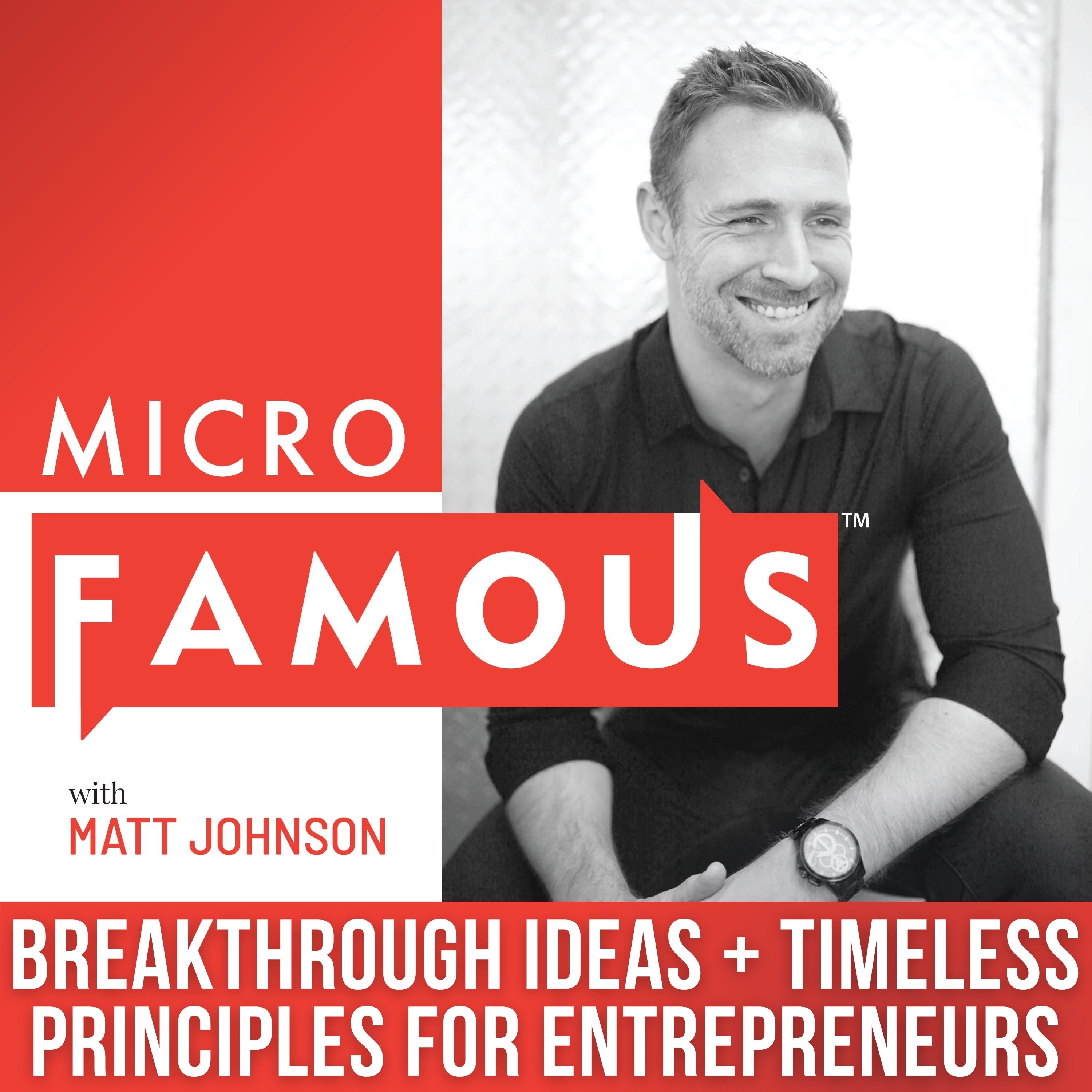You Can't Fix This With More Instagram Selfies: The Biggest Challenge Facing Coaches & Consultants Right Now
Description
As lead gen costs continue to go up, and social media algorithms are optimized for rapid rising, negative emotional responses, it gets more and more difficult to put any kind of a direct response call-to-action in front of people on social media.
That goes for whether you pay to play or not.
I'll give you an example. Let's rewind to February 2020, the MicroFamous book just launched, got great feedback and reviews. So my idea was to run the free+shipping offer to build the email list, and I built a whole 90-day email nurture system to follow up and convert those book buyers into true believers in the MicroFamous message.
But the ads just were ridiculously expensive, despite us doing all the latest, greatest, micro-testing techniques.
Then I found out why.
The guy helping me with ads checked with his network around May of 2020 and heard that it was starting to cost $40-50 in ads to get one conversion on a $7 free+shipping book offer. What that told me is that the people doing it are spending a warchest to build their email list. They probably have a complex set of backend follow up and a mix of offers to try to recapture all that ad spend and hopefully make a profit. And who knows if it's working or how long they're waiting to actually profit. Just because people are doing things doesn't mean it's working or that it's sustainable.
So I pulled back that offer.
My observation is that over the long run, lead gen costs will continue going up, regardless of short-term issues like iOS14 or variations in the market or by niche.
The more the big companies start shifting ad budgets away from TV and radio into social media, it just drives up everyone's cost. This shouldn't be a surprise to anyone.
I've talked to some Facebook ad agency folks over the last year, and they're proud of getting their clients leads at $5-10. When they first start running ads, opt-ins can be $15, $20 or more. Now, you might say, what about the folks who are running ads and selling programs and courses in the millions? The Russell Brunsons, Russ Rufinos, Amy Porterfields, etc.
I have no doubt that the top 1-5% of info-marketers are still making money.
Whether that's with free+shipping funnels. Or running ads to webinars with a whole series of upsells and cross-sells and complicated, trigger-driven email campaigns.
Or maybe they're running ads to call-funnels and hard-selling with a phone team. I'm sure it all still works to a degree. But to make the math work now, in an environment of $5-10 lead costs, the game has changed. Your backend has to be fine tuned.
It reminds me of a story one of my mentors, Frank Klesitz, told on this podcast in the episode on puffery and copywriting. The story goes that he was at a Dan Kennedy event years ago, and one of the guest speakers was a top info-marketer.
And to show his autoresponder campaign in all of its glory, he took a 6-foot tall roll of paper with his entire campaign sketched out. When the paper was rolled out, it ran across the width of the entire stage and needed several people just to hold it up.
On seeing that, Frank decided that was not where he wanted to compete.
So is the biggest challenge facing us just an issue of optimizing ads? In other words, if we just became better info-marketers, does that solve the problem?
I don't think so.
Let's say the top 5% of info-marketers can still scale up using social media ads and a complex backend of funnels and triggers and upsells and cross-sells. Do you WANT to put in the work to reach the top 5% of info-marketers? Do you have the rare set of skills and mentality and engineering ability to get there?
Do you have the internal values that drive you to extract maximum value from someone regardless of whether it's in their best interest? I don't know that I do. I certainly don't have the values piece.
I also don't have the passion to reverse engineer ads on social media...every day... looking for that...
More Episodes
For creative entrepreneurs, there’s always a tension between the creative projects we want to undertake, and the need to make it easy for people to understand the niche we fit into.
It doesn’t make sense for us to be everything to everyone, but niching down is challenging because it feels like...
Published 06/02/22
Published 06/02/22
Joe Rogan is the exception that proves the rule.
For every 3 hour episode of Joe Rogan, there's a podcast that is shortening up their average episode.
And rightfully so, I think.
We're going on 10+ years of long-form interview podcasts, and the format itself is no longer rare and...
Published 05/19/22


